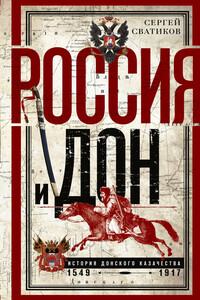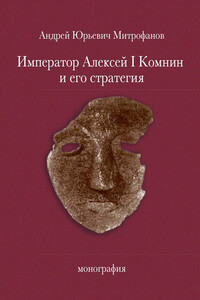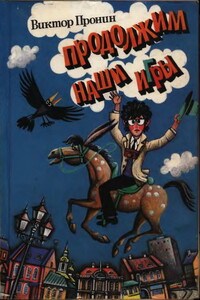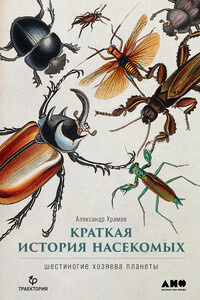Английский язык для специальных и академических целей: Международные отношения и зарубежное регионоведение. Часть 1 - [77]
In 2011 Mr Obama inadvertently helped to lay the ground for today's vicious insurgency by withdrawing US forces from Iraq too soon. He left a vacuum and called it peace. Now he is tiptoeing back with his fingers crossed. The same reluctance to look down the road may well be repeating itself in Afghanistan. Mr Obama went out of his way last week to say that the Isis campaign would have no impact on his timetable to end the US combat mission in Afghanistan. The only difference between Iraq in 2011 and Afghanistan today is that you can see the Taliban coming. Nor does it take great insight to picture the destabilisation of Pakistan. In contrast to the Isis insurgency, which very few predicted, full-blown crises in Afghanistan and Pakistan are easy to imagine. So too is the gradual escalation of America's re-engagement in Iraq.
Mr Obama's detractors on both right and left want him to come clean — the US has declared war on Isis. Why else would his administration vow to follow it “to the gates of hell”, in the words of Joe Biden, the vice-president? Last year, Mr Obama called on Congress to repeal the law authorising military action against al-Qaeda that was passed just after 9/11. “Unless we discipline our thinking . . . we may be drawn into more wars we don't need to fight,” he said. Mr Obama is already vulnerable to what he warned against. His administration is basing its authority to attack Isis on the same unrepealed 2001 law.
Why does America need to destroy Isis? The case for containment — as opposed to war — has received little airing. But it is persuasive. The main objection is that destroying Isis will be impossible without a far larger US land force, which would be a cure worse than the disease. Fewer than 1,000 Isis insurgents were able to banish an Iraqi army force of 30,000 from Mosul in June — and they were welcomed by its inhabitants. Last week Mr Obama hailed the formation of a more inclusive Iraqi government under Haider al-Abadi. But it has fewer Sunni members than the last one. Nouri al-Maliki, the former prime minister, has been kept on in government.
The task of conjuring a legitimate Iraqi government looks like child's play against that of building up a friendly Syrian army. Mr Obama has asked Congress for money to train 3,000 Syrian rebels — a goal that will take months to bear fruit. Isis now commands at least 20,000 fighters. Then there are America's reluctant allies. Turkey does not want to help in any serious way.
Saudi Arabia's support is lukewarm. Israel is sceptical. Iran, whose partnership Mr Obama has not sought, is waiting for whatever windfalls drop in its lap. The same applies to Bashar al-Assad, Syria's president.
Whose army — if not America's — will chase Isis to the “gates of hell”? Which takes us back to where we started. Mr Obama wants to destroy an entity he says does not yet pose a direct threat to the US. Mr Bush called that pre-emptive war. Mr Obama's administration calls it a counterinsurgency campaign. Is it a distinction without a difference?
The US president's aim is to stop Isis before it becomes a threat to the homeland. History suggests the bigger risk is the severe downside of another Middle Eastern adventure.
It is hard to doubt Mr Obama's sincerity. It is his capacity to wade through the fog of war that is in question.
The Reader
http://www.themoscowtimes.com/opinion/article/could-is-bring-russia-and-the-us-togeth-er/506711.html
By Roland Dannreuther
Sep. 09 2014
The start of a fragile cease-fire in Ukraine opens up the potential for some limitation of the dangerous escalation in tensions between Russia and the West. Yet even as U.S. President Barack Obama is directly accusing Russia of intervention in support of the separatists in eastern Ukraine, the meteoric rise of the Islamic State (IS) in the Middle East presents a serious threat to both countries.
The U.S. and Russia have been equally committed and determined to counter militant Islamist terrorism; both have been directly threatened by the group; both have an interest in a sovereign and unified Iraq; and there are growing voices in Washington suggesting that an accommodation with the Syrian regime of Bashar Assad will be needed if IS is to be repelled.
Unsurprisingly, Russian Foreign Minister Sergei Lavrov has enthusiastically supported any potential favorable U.S. shift toward the Syrian regime.
Might Russia again play the role of interlocutor and mediator for Washington in the Middle East? The resonance here is with the deal struck by Russia in September last year over the elimination of Syria's chemical weapons stock.
The political context then in terms of U.S.-Russian relations had some similarities to the current situation. U.S.-Russian relations were similarly at a low ebb as there was a fundamental difference of opinion about what should be done about the Assad regime.
The U.S. demanded Assad's unconditional removal, while Russia insisted that this could not be a pre-condition for a resolution of the crisis. Both countries blamed the other for the intensity and bloodshed of the Syrian civil war. Russia argued that U.S. policy had only radicalized the opposition, breeding new extremist Islamist groups. The U.S. blamed Russia for undermining the moderate claims of the opposition through its unbending support for the criminal Syrian regime.

Предлагаем вашему вниманию адаптированную на современный язык уникальную монографию российского историка Сергея Григорьевича Сватикова. Книга посвящена донскому казачеству и является интересным исследованием гражданской и социально-политической истории Дона. В работе было использовано издание 1924 года, выпущенное Донской Исторической комиссией. Сватиков изучил колоссальное количество монографий, общих трудов, статей и различных материалов, которые до него в отношении Дона не были проработаны. История казачества представляет громадный интерес как ценный опыт разрешения самим народом вековых задач построения жизни на началах свободы и равенства.

Монография доктора исторических наук Андрея Юрьевича Митрофанова рассматривает военно-политическую обстановку, сложившуюся вокруг византийской империи накануне захвата власти Алексеем Комнином в 1081 году, и исследует основные военные кампании этого императора, тактику и вооружение его армии. выводы относительно характера военно-политической стратегии Алексея Комнина автор делает, опираясь на известный памятник византийской исторической литературы – «Алексиаду» Анны Комниной, а также «Анналы» Иоанна Зонары, «Стратегикон» Катакалона Кекавмена, латинские и сельджукские исторические сочинения. В работе приводятся новые доказательства монгольского происхождения династии великих Сельджукидов и новые аргументы в пользу радикального изменения тактики варяжской гвардии в эпоху Алексея Комнина, рассматриваются процессы вестернизации византийской армии накануне Первого Крестового похода.

Виктор Пронин пишет о героях, которые решают острые нравственные проблемы. В конфликтных ситуациях им приходится делать выбор между добром и злом, отстаивать свои убеждения или изменять им — тогда человек неизбежно теряет многое.

«Любая история, в том числе история развития жизни на Земле, – это замысловатое переплетение причин и следствий. Убери что-то одно, и все остальное изменится до неузнаваемости» – с этих слов и знаменитого примера с бабочкой из рассказа Рэя Брэдбери палеоэнтомолог Александр Храмов начинает свой удивительный рассказ о шестиногих хозяевах планеты. Мы отмахиваемся от мух и комаров, сражаемся с тараканами, обходим стороной муравейники, что уж говорить о вшах! Только не будь вшей, человек остался бы волосатым, как шимпанзе.

Настоящая монография посвящена изучению системы исторического образования и исторической науки в рамках сибирского научно-образовательного комплекса второй половины 1920-х – первой половины 1950-х гг. Период сталинизма в истории нашей страны характеризуется определенной дихотомией. С одной стороны, это время диктатуры коммунистической партии во всех сферах жизни советского общества, политических репрессий и идеологических кампаний. С другой стороны, именно в эти годы были заложены базовые институциональные основы развития исторического образования, исторической науки, принципов взаимоотношения исторического сообщества с государством, которые определили это развитие на десятилетия вперед, в том числе сохранившись во многих чертах и до сегодняшнего времени.

Эксперты пророчат, что следующие 50 лет будут определяться взаимоотношениями людей и технологий. Грядущие изобретения, несомненно, изменят нашу жизнь, вопрос состоит в том, до какой степени? Чего мы ждем от новых технологий и что хотим получить с их помощью? Как они изменят сферу медиа, экономику, здравоохранение, образование и нашу повседневную жизнь в целом? Ричард Уотсон призывает задуматься о современном обществе и представить, какой мир мы хотим создать в будущем. Он доступно и интересно исследует возможное влияние технологий на все сферы нашей жизни.